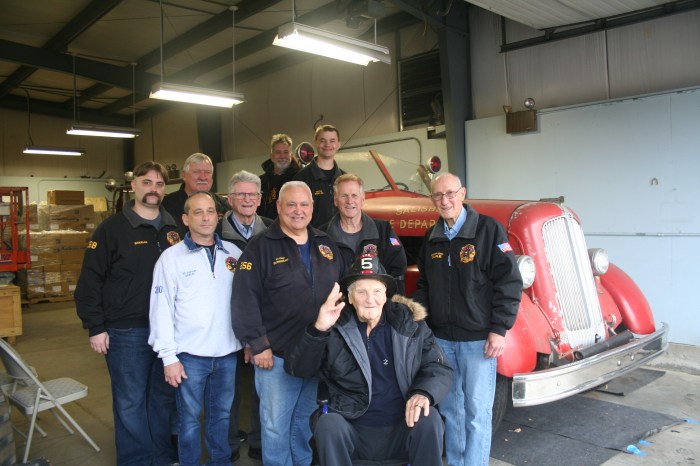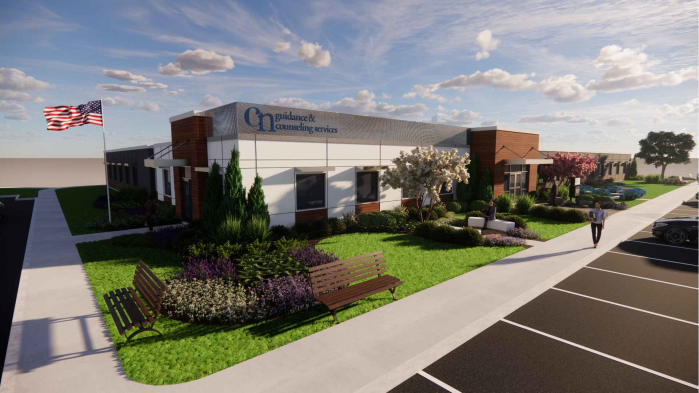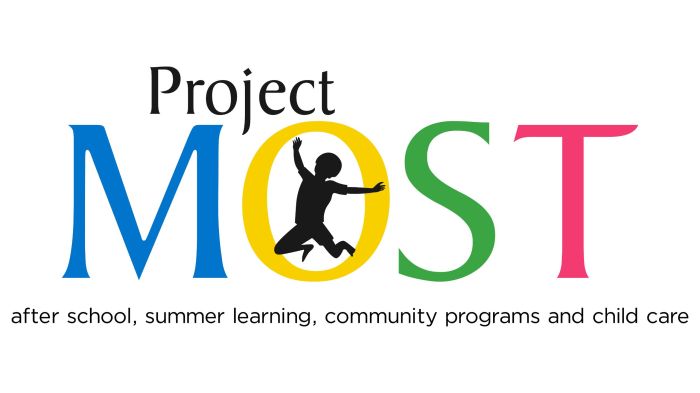Hicksville Non-Profit Proves Positive Energy is
Key to Surviving, Thriving
Peter Cornelis is a man on a mission.
Driven by his passion to educate, comfort and serve both people who have suffered strokes and people who care for them, this six-time stroke survivor is working tirelessly to take his message to the masses. Hope for Stroke, a non-profit he co-founded with Joseph Foley, also a stroke survivor, recently held a seminar at the Hicksville Community Center that brought together experts in the field, caregivers and stroke survivors. The group’s message of positive energy and optimism filled the room, despite grim statistics that stroke is the third leading cause of death and a leading cause of adult disability, according to the National Stroke Association.
But doom and gloom is not Cornelis’ style. Far from it. This gentle man with a ready smile and warm embrace personifies the optimism that inspired the name of the organization that began in his garage seven years ago. H.O.P.E. stands for Healing On Positive Energy. Time and again, before the meeting and during it, Cornelis was embraced and thanked by people for his encouragement during their darkest days.
Forty-five-year-old Denise Bisconti, who has suffered nine mini strokes, praised the organization as “amazing” and crucial to her recovery process. She smiled and said, “You have to live every moment,” and Cornelis is committed to showing how to do just that.
Oyster Bay Town Councilwoman Rebecca M. Alesia said that “there are many fine organizations in Hicksville” but Peter is someone special. She told him, “You make people want to believe” and pledged the town’s continuing support. She was among the many people on hand recently for the grand opening of Hope for Stroke’s center at 147 Broadway.
Having its own office was not even a dream when Cornelis first envisioned the organization. While recovering, he says he “saw holes that weren’t being filled” for stroke victims “who lose their sense of self” and who are filled with countless questions. So he set about to correct misinformation and bring the latest new information to every person he could reach. It was not long after he and Joe Foley, who was also at the meeting answering questions and keeping it running smoothly; established their website that they heard from people near and far. Cornelis says they have received more than two million hits from around the world. People, he said, “want to know the way.”
Among the speakers was caregiver Bill Christmann whose wife, Laura, suffered a stroke three years ago. “We are so positive,” he said, “despite a world of darkness.”
His wife and mother of their two children was in the audience gently laughing at his jokes and lending her support. Christmann said “their life of laughing” ended Dec. 12, 2007 when she suffered a stroke that was first misdiagnosed as meningitis. Hospitalized for more than a month before she was transferred to a rehabilitation facility, it was a while before she was able to laugh and smile again. When the day came that she received a roommate close to her age, Christmann said “it was like a sorority” and he saw her happiness return. Now “our existence is one of positive energy,” he said.
The day’s theme of hope and optimism continued when Oyster Bay speech pathologist Judy Cavallo addressed the gathering of about 45 people. Her practice is devoted to helping people who suffer strokes “regain functional communication skills” and requires working closely with their families. She told a story about a patient she now sees twice a week. Recently, a cousin, whom he had not seen in 10 years, visited the man. Tears flowed. Such tender moments, when stroke victims feel things so deeply, leave her feeling so “grateful” she is able to do the work she does.
Cavallo had worked with Peter Cornelis to help him regain his speech when he was recovering. She praised him for “his courage” and said “the level of support that Hope for Stroke provides is “unbelievable” and “the level of compassion is amazing.”
Keynote speaker Dr. John Pile-Spellman, a world-renowned specialist, led the captive audience through a slide show that detailed the inner workings of a stroke. Two keys to prevention, he said, are diet and exercise. “You can increase life expectancy by reducing calories. Being skinny will prolong your life. Being obese will shorten it.” He emphasized portion control. “Step away,” he said. “Just eat less.” And if you smoke, stop now, he said.
If you think you are having a stroke, Dr. Pile-Spellman said, get medical help fast. Time is of the essence. Call 911 without delay. The signs of stroke include weakness or numbness in arms, legs, fingers, toes, or slurred speech. He said simply be aware “if you suddenly can’t do now what you could do yesterday.” Pay attention to your body. Listen to it. It may be telling you something important.
The organization states its vision is to be a “safe harbor” for survivors and caregivers. This message is borne in its logo, which Cornelis used his skills as an artist to create. By “training my left hand to do what my right hand once did” he drew a pen and ink etching of the Montauk Lighthouse, choosing it as a symbol “to show there is light at the end of the dark tunnel.” A former “sales and marketing man” Cornelis reaches out as warmly to caregivers, whose tireless work is sometimes overlooked as to the stroke sufferers themselves. He said, “We counsel them, we become their friends, we become their families.”
Peter Cornelis says two acronyms express his inspirational message: H.O.P.E. – Healing On Positive Energy and P.A.C.E – Positive Attitude Changes Everything. Hope for Stroke meets on the third Saturday of every month. In addition there are two formal meetings, such as this seminar, each year. The next one is in June.
The website is Hope4Stroke.org. It is located at 147 Broadway, Hicksville. The phone number is 516-804-8495.































